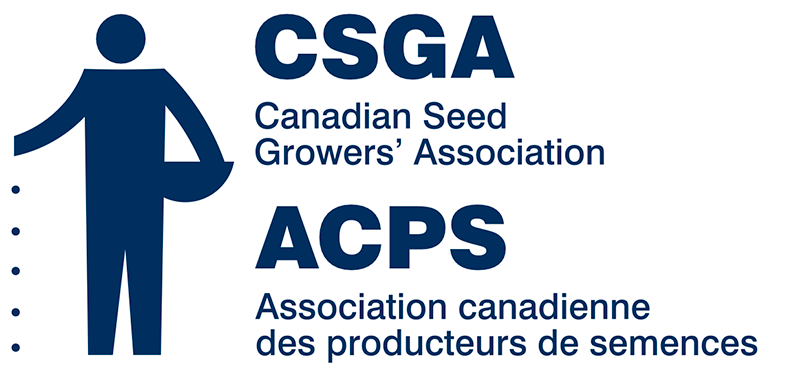June 2020
Notice of the CSGA Annual General Meeting
As noted in previous communications, the in-person 2020 Annual General Meeting (AGM) in Winnipeg was cancelled due to the COVID-19 crisis. It has now been replaced by a virtual meeting.
The CSGA virtual AGM is scheduled for Tuesday, July 7, 2020 from 12:00 pm – 4:15 pm EDT. The draft meeting agenda is available online. The meeting will be open to all members and stakeholders who can join the AGM online at web.lumiagm.com/144875937 with the password: growers2020.
Members of the Association will soon receive a complete information package by regular mail. It will include a unique identifier to allow members access to an online secured portal for purposes of voting on association business. Online voting will be open during the meeting July 7, 2020.
Back to topHave Your Say! Reminder of CSGA’s Seed Regulatory Modernization Survey
In early May, the CSGA released an invitation to members to participate and have their voices heard in a Seed Regulatory Modernization survey. If you haven’t participated, please take a moment to complete the survey as we need your input to help shape the future seed regulatory environment in Canada.
The Canadian Food Inspection Agency (CFIA) has proposed to modernize the Seeds Regulations with industry participation. Your feedback from this survey is essential for us to ensure your views are adequately represented in these consultations.
If you missed the original invitation, please follow this link to complete your survey. The survey will remain open until June 30, 2020 at 11:59 pm ET.
Thank you for your time and contribution. Please do not hesitate to reach out to mscheffel@seedgrowers.ca or lmahabir@seedgrowers.ca should you have any questions.
What We’ve Heard So Far
We would like to start sharing the information we received to date.
Charts 1 to 4 are responses to questions asking respondents if changes are required to the current framework of responsibilities in the seed system. The survey provides the relevant information on who currently provides oversight and authority within the seed system, broken down by identified functions.
The survey will also provide you with an option to explain your choice of answer.
The fifth chart presents responses from members on what seed quality information customers commonly request.
Chart 1: Are changes required in the authority and/or oversight for Research and Development functions in the seed system?
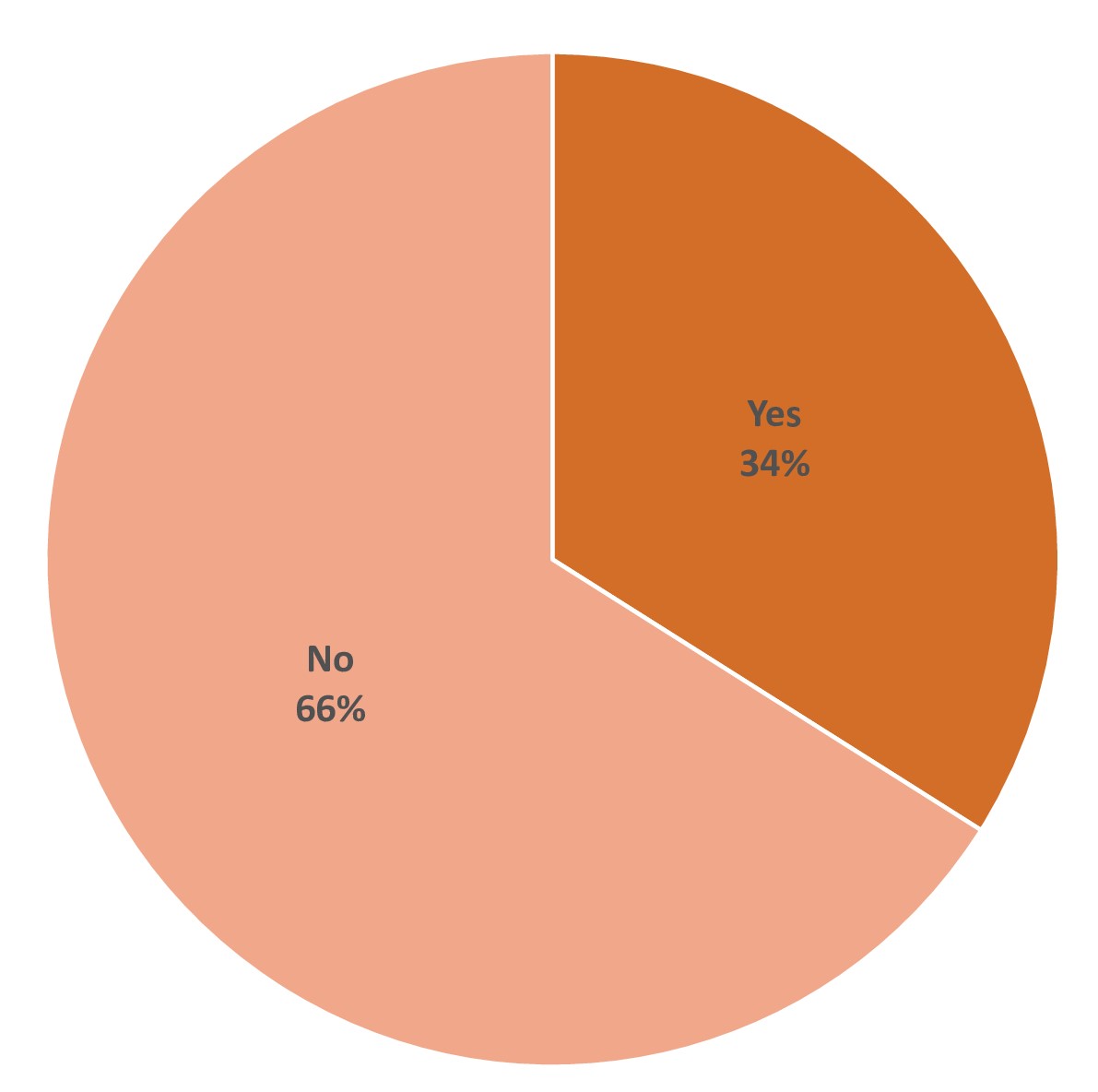
Chart 2: Are changes required in the authority and/or oversight for Market Entry and Commercialization functions in the seed system?
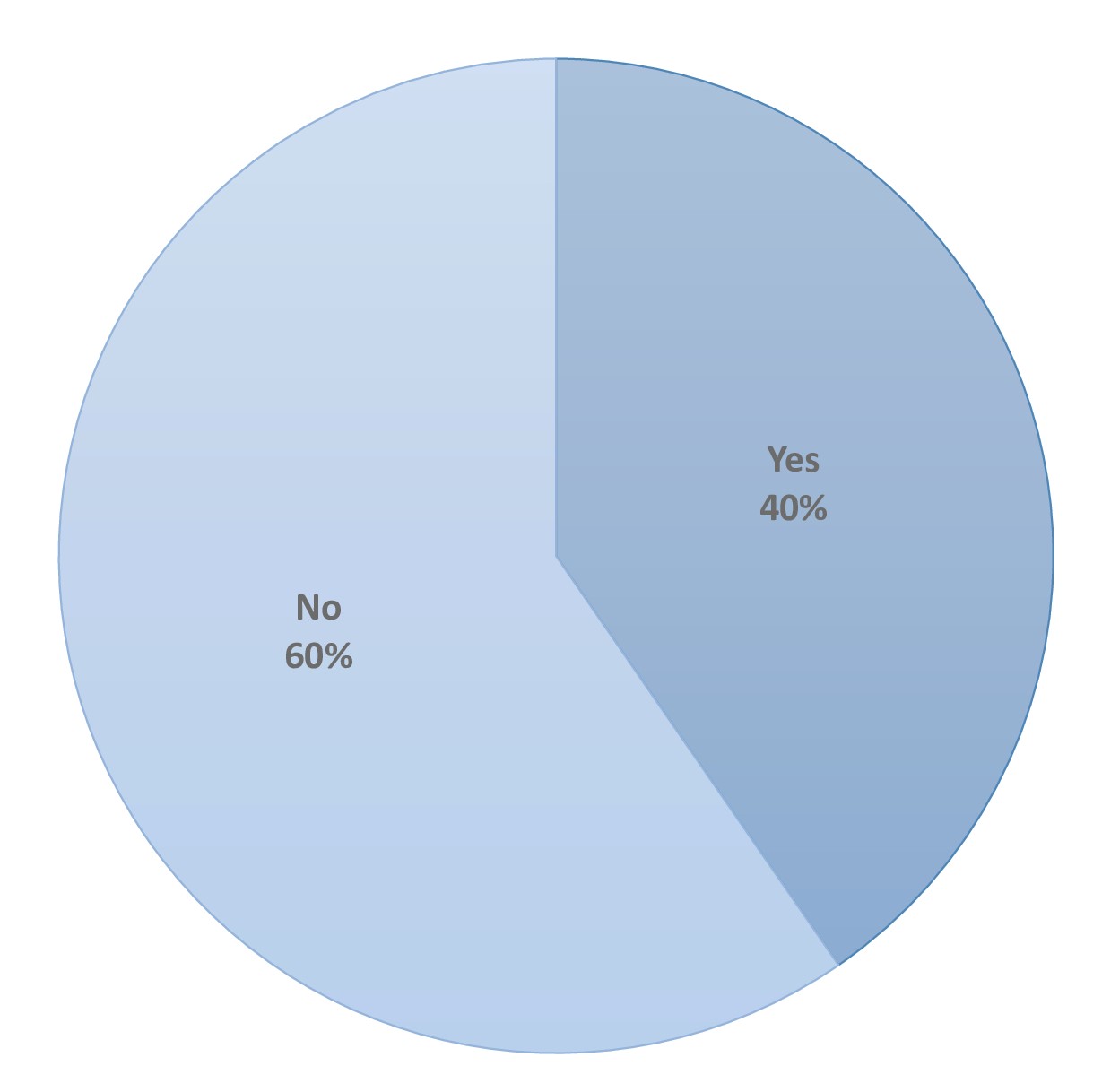
Chart 3: Are changes required in the authority and/or oversight for the Production and Processing functions of the seed system?
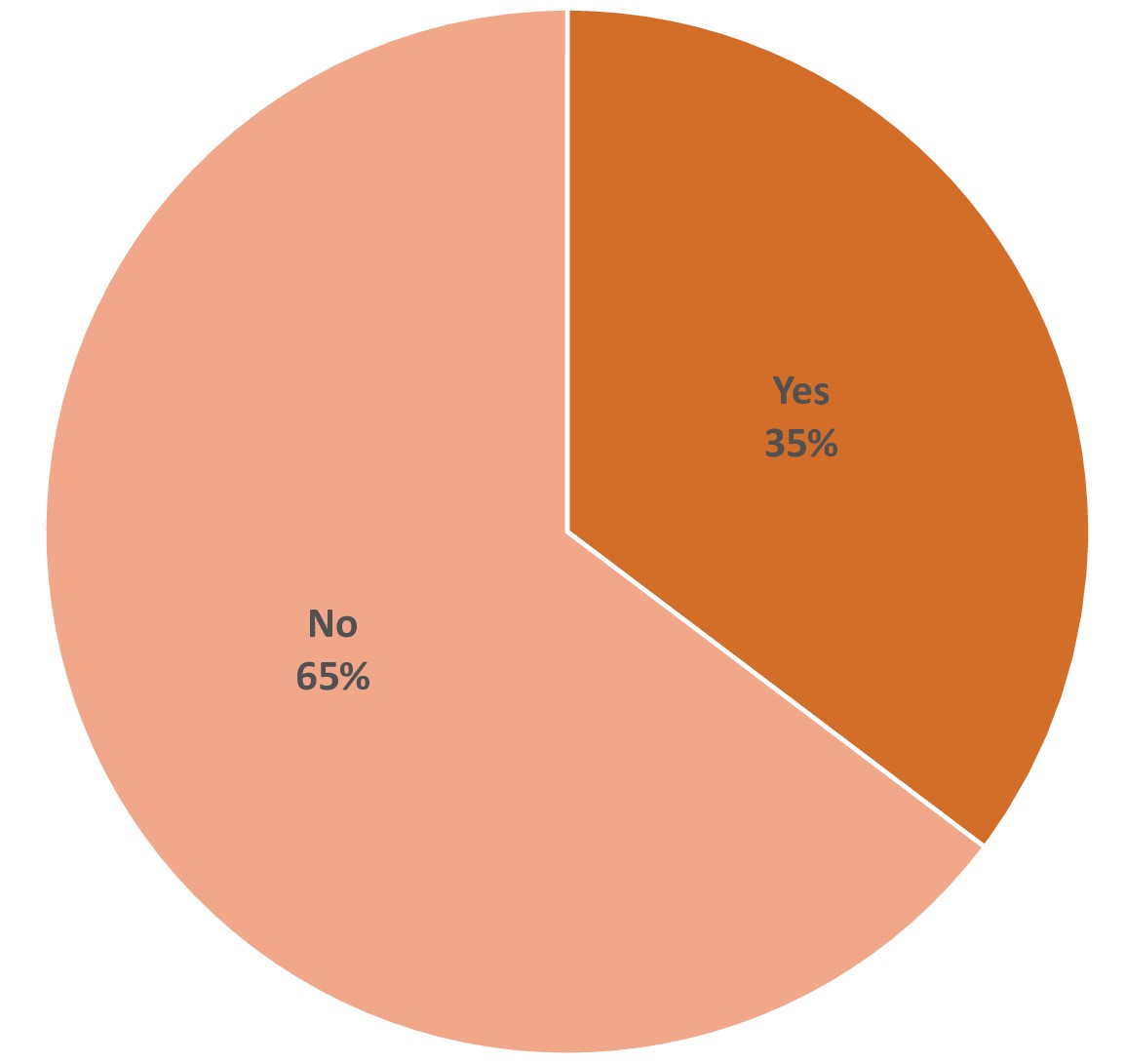
Chart 4: Are changes required in the authority and/or oversight for Sales and Distribution functions in the seed system?
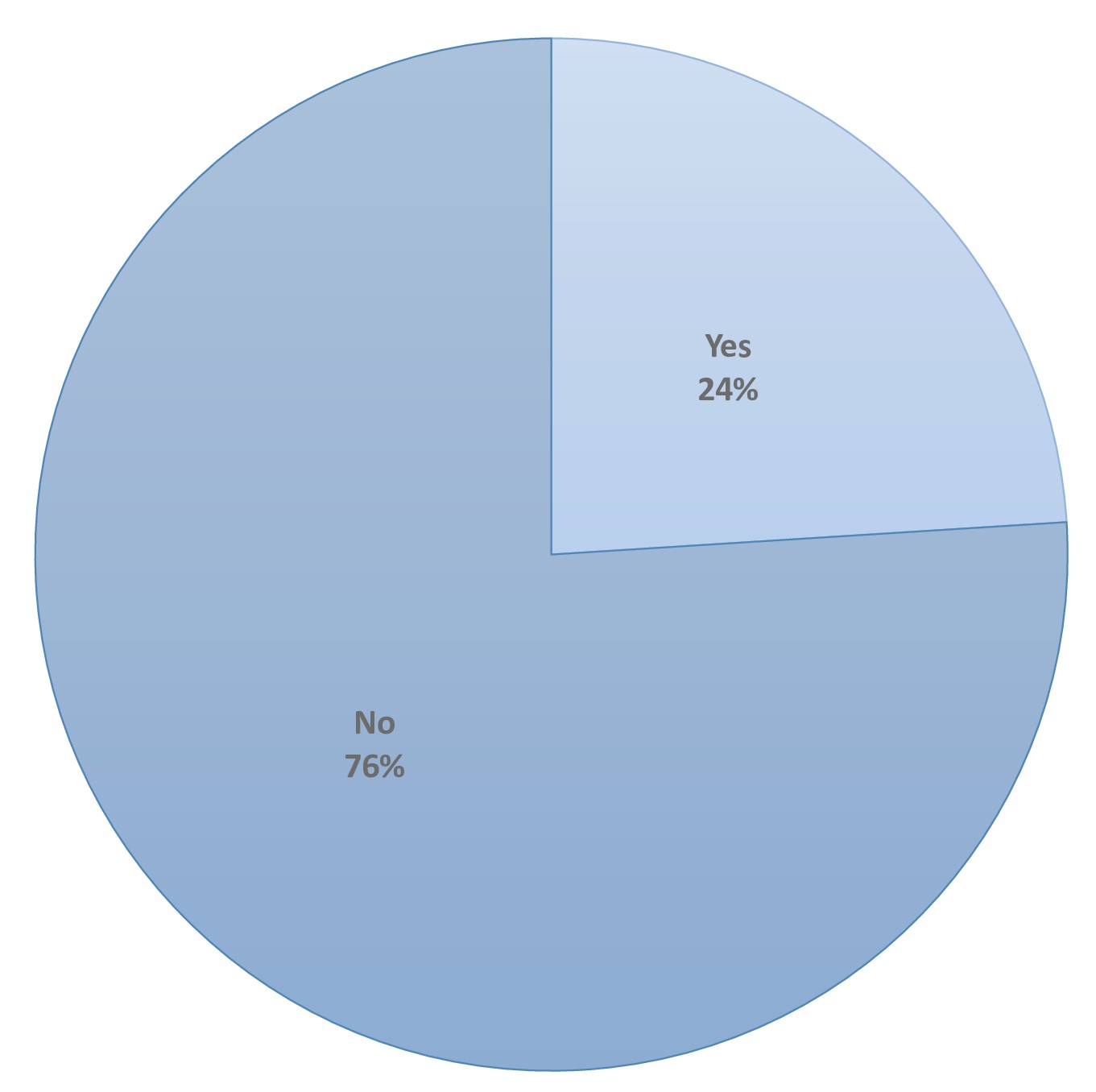
Chart 5: Seed quality information requested by customers.
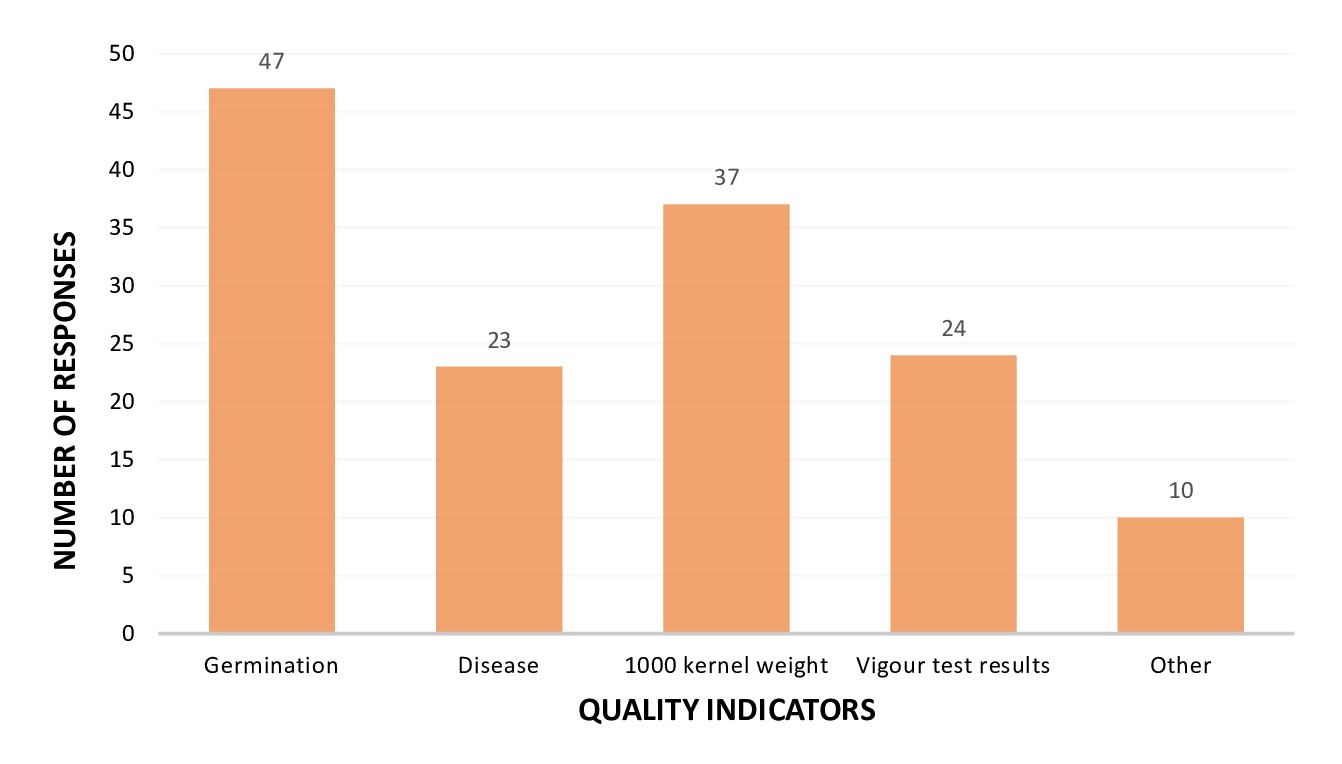
Are You Minimizing Your Inspection Needs? CSGA’s Definition of a Field
Now is a good time to review your production plans to identify any fields that could be combined before inspection. Fields can be combined if they are planted by the same grower with seed of the same variety and are contiguous, with the exceptions and considerations described as follows.
Fields that have been managed separately in the past may be combined. Two (or more) fields can be combined if:
- they are planted with the same variety and class of seed, and
- the previous land use for each means that they are eligible to produce the same pedigreed class.
Even if both 1 and 2 are not true, it may still be possible to combine the fields, as long as the grower only needs the lowest class of seed for which the combined fields are eligible.
Example A: if two fields are planted with seed of the same variety but of different pedigreed classes, the two fields would be eligible to produce different classes and should be inspected separately.
Example B: if the previous land use for each field means that each portion is eligible for a different pedigreed class, the two fields should be inspected separately.
In both examples, if the grower is only interested in harvesting the lower pedigreed class for which the combined field is eligible, the two fields can be combined and inspected together. Combined fields can always be split again in a following year if necessary.
In the case of perennial crops, if two fields are planted at different dates they should be inspected separately.
Fields should have separate applications if they are not adjacent or contiguous, or if they are separated by a large physical barrier. Roads with ditches and public roads are considered large physical barriers but single-lane farm and access roads are not. Similarly, deep ditches or treelines that are impassable to farm equipment would be considered large barriers, but shallow ditches would not be considered an issue. Terracing is not considered a large physical barrier so long as the fields are contiguous.
If you have fields that need to be split or combined, please contact the CSGA office. Fields can be split and combined at any time, but best to do it early to avoid needing a reinspection.
For more information, please see CSGA’s guidance document on the definition of a field.
Back to topBee Kind
Did you know that in Canada, honeybees alone account for approximately $2 billion of Canada’s economic output resulting from pollination services of crops such as canola, blueberries, and other orchard and field crops? Indeed, managed honeybees are the main pollinator of crops in Canada and globally.
The 2020 “Planting Forage for Honey Bees in Canada” guide provides an overview of where and how honey bee forage can be created in Canada.
Read up on the new ‘Buzz’ and help create forage and habitat for Canadian honeybees.
Back to topCOVID-19 and the CSGA
Business and personal restrictions continue with the COVID-19 health pandemic. Your CSGA staff continue to work remotely and are available to you via email or phone. If you missed it, please read CSGA’s COVID-19 communication to members referenced here to learn of changes this crop season. Also, CFIA COVID-19 resource information is available here.
Wishing you and your family continued health.
Back to topContact Us
CSGA staff are here to help you. Don’t hesitate to contact us. Remember the CSGA national office operates in the Eastern Time (ET) zone.
Telephone: (613) 236-0497
Email: communications@seedgrowers.ca
Address: 21 Florence St, Ottawa, Ontario K2P 0W6
Click here for complete staff contact information.



